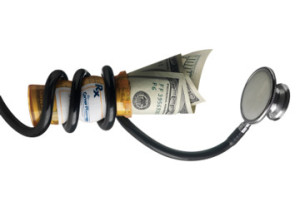March 25, 2017
 The right thing to know – The world we live in is full of risks and insecurities. Families, individuals, businesses, assets and properties are exposed to numerous types and certain levels of high risks. These definitely include the risk of health, life, property, assets, etc. We know that it’s difficult to prevent these risks, especially sudden miss happenings so the financial world has taken the responsibility to protect business and individuals against losses by compensating them with finance. Therefore, insurance is required with the full pace that eliminates or reduces the loss caused by any risk.
The right thing to know – The world we live in is full of risks and insecurities. Families, individuals, businesses, assets and properties are exposed to numerous types and certain levels of high risks. These definitely include the risk of health, life, property, assets, etc. We know that it’s difficult to prevent these risks, especially sudden miss happenings so the financial world has taken the responsibility to protect business and individuals against losses by compensating them with finance. Therefore, insurance is required with the full pace that eliminates or reduces the loss caused by any risk.
When we talk about health insurance, the first thing that comes to our mind is ‘Grandparents’. Ever thought health is such an important thing, especially when it’s about growing age. Sometimes, we initially don’t take a risk of traveling with them to abroad; we suffer from a fear of bad health. But every time this tact can’t be followed rather we need to find some solution for this. The best and relevant to this is – Super Visa Health Insurance.
Now, what exactly is Super Visa?
Super visa is a long term multiple entry visa for both grandparents and parents of Canadian citizens or permanent residents. They can stay up to maximum 2 years in Canada for every visit. This is valid up to 10 years. However, a regular multiple entry visa is also valid up to 10 years; but you can stay for 6 months only for every visit.
Eligibility for Super Visa
Super Visa is for grandparents and parents for Canadian citizens or permanent residents. Apparently, the grandparent or parent must be admissible to Canada and meet all the terms and conditions. Read on:
- The applicant need to show Canadian medical insurance that meets the basic requirements and also covers then for minimum 1 year.
- The applicant needs a letter of finance support from their grandchild or child in Canada, who earns the minimum required income.
- Private medical insurance proof is required for the minimum time slot of one year with a copy of Canadian insurance company that covers hospitalization, repatriation, and health care and provides a minimum coverage of the certain amount, also is valid for the entry in Canada.
- A copy of employment insurance pay stubs for grandchild or child.
Importance Generated
Although, the procedure can be little different if a grandparent or a parent is from another country, therefore, a visa is strictly required to enter Canada as a visitor. Health Insurance plays a key role in Super Visa, so make sure this is not ignored.
Validity for Super Visa
The maximum validity for Super Visa is 10 years, or it can be an addition to one month prior if the passport expires (whichever is earlier). Within this time Super Visa holders can stay up to two years.
On That Note
We truly know, how important is health insurance in today’s life, especially for our parents and grandparents. Therefore, in every limit, we need to make sure that this insurance is taken care.
Tags:
Coverage,
economy,
financial planning,
Health Insurance,
insurance,
investments,
Law,
Legal,
Medical Insurance,
Returns
April 20, 2016
 The same health insurance policy can cost you differently at different life stages. We explain why this happens.
The same health insurance policy can cost you differently at different life stages. We explain why this happens.
Taking life insurance in today’s times of uncertainty is de rigueur for any responsible person. While lifestyle diseases and serious illnesses like cancer are on the rise, the world is also witnessing unprecedented acts of terrorism and natural disasters. All in all, life is quite unsafe all over the world. But while we can exercise no control over how the world behaves and affects us, we can certainly safeguard ourselves and our families with life and health insurance policies.
However, the timing of purchase is crucial: any financial planner and insurance advisor will tell you that the younger you are when you buy life and health insurance plans in India, the lower your premium payments will be. There is a curious correlation between one’s age and how affordable or expensive the insurance plans become. This correlation changes with:
The 20s: A person has a job with a modest income, possibly a first job. The policy holder has relatively lesser family responsibilities and can easily pay the health insurance policy premiums. A person in their 20s is also healthier and fitter than his older counterparts, so the chance of disease is lower. Also, insurers estimate a larger life span for the policy holder, hence the sum assured will be higher while the premium payments will be lower.
The 30s: By this time, a person is married and has a family, while also having a stable job. His income is also higher than in the previous decade, while his health profile may not be as good as earlier. Insurers anticipate that certain lifestyle diseases like diabetes and cardiac problems take root in this decade. Also, your profession and lifestyle can have a bearing on the premiums of your health insurance policy. If you are employed in a line of work that puts you in danger (such as the police force, fire brigade, mining and construction, etc.) the insurer will insist on a higher premium payment for you.
The 40s and 50s: Premiums on health insurance plans will be much higher as compared to those a person in his 20s would pay. Insurers anticipate a lower life expectancy for the customer at this stage, along with many varied expenses at home (children’s higher education, medical treatment costs for self and parents, home mortgage payments, etc.) and so, the premiums will be larger. Insurers will also insist on a detailed health profile to eliminate the possibility of unknown diseases, critical illnesses, disorders arising out of smoking and substance abuse, etc.
The 60s: Most insurers do not give health insurance policies in India to people who have crossed the age of 60 years. People in this age group have retired from active duty, hence they do not have an income from which they can pay their health premiums. Secondly, it is costlier to insure a person past the age of 60 because of a high incidence of poor health and diseases. Instead of taking individual health plans in their 60s, people in this age group should look at getting included in the family health plans of their children.
Tags:
Claims,
Coverage,
economy,
Health Insurance,
insurance,
investments,
money,
personal finance
October 25, 2015
 It was like a message from beyond the grave. One man’s actions left his family protected from the financial aftershocks of his sudden demise.
It was like a message from beyond the grave. One man’s actions left his family protected from the financial aftershocks of his sudden demise.
Most of Vinit Sharma’s* friends remember the printing press owner in Mumbai as a quiet, unassuming person who spoke only when necessary. Even in his close circle of friends, Vinit was always the quietest but he had the loudest laugh. The only time he became gregarious was when he would spend time with his two children, Asha* and Vinay*.
But despite his studied silences, he was always helping others whenever he could. If the building kids needed help hauling tubs of water downstairs for Holi, Vinit would be the first to help them. His wife would often see him writing cheques to the local orphanage – without saying a word even to her. If a neighbour needed to reach the airport at midnight, he would often volunteer to drive them.
But his family was unaware of one miracle Vinit had already worked out years before he passed away last year after succumbing to a heart attack. He was just 49 years old with no history of heart trouble. His devastated wife, Shyamala* says, “He suffered a heart attack at home just before leaving for work. By evening, the doctors told me that he could not be saved. The attack had been a severe one. I remember sitting alone in the corridor outside, wondering about my future and the future of my two children.”
A few days later, a long forgotten memory suddenly presented itself to her. “I remembered that some years ago, Vinit had told me to look in his safe in the wardrobe for his insurance papers. ‘In case anything happens to me…call the company and claim the insurance money’ he had told her at the time. “I had heard him out but dismissed it. Nobody in their wildest dreams expects their partner to leave them in their 40s. But I remembered what he had said and checked his safe. Sure enough, I found the insurance papers,” Shyamala recalls.
It turned out that Vinit had taken a health insurance plan that covered the entire family. “The plan was to mature in five more years. He had never missed a premium payment. When I saw the sum assured amount, I gasped in surprise,” she smiles. After contacting the insurance company, she set the health insurance plans claim process in motion. “All the paperwork was in order, and the process of claiming the money was very simple. I got the sum assured in under a month,” she says.
She remembers feeling like “a cloud had lifted” despite losing her beloved husband. “The money would help in my children’s education for a few years. There was enough left over for monthly expenses as well. It felt like it was his last gift to his family from beyond the grave,” she says with tears in her eyes. “We all miss him terribly, not a single day passes when I do not think of him. But even after his death, he looked after our needs. That one step he took –of taking a health insurance policy – ensured that my children and I would not need to depend on anyone else for our sustenance.”
Today, she runs her husband’s business which is doing quite well. Her daughter will enter college life soon, and his son says he plans to become a pilot. The family’s dreams are on course – just like Vinit wanted.
*Characters in the write-up are merely illustrative
Tags:
Claims,
Coverage,
economy,
Health Insurance,
insurance,
investments,
Medical Insurance,
Returns
October 23, 2013
 Back when life insurance first came out, when it was common to have salesmen come knocking at the door, the odds of dying young were higher than they are now. Many illnesses that are treatable now were often fatal. Men, and women, were concerned with leaving their families with nothing and shouldering the burden of funeral costs on their own. Because of the advances in medicine, many of the illnesses that used to be fatal are now curable. With these advances, though, come the costs of treatment and care. That is why it is important for people of any age to look into no medical critical illness insurance.
Back when life insurance first came out, when it was common to have salesmen come knocking at the door, the odds of dying young were higher than they are now. Many illnesses that are treatable now were often fatal. Men, and women, were concerned with leaving their families with nothing and shouldering the burden of funeral costs on their own. Because of the advances in medicine, many of the illnesses that used to be fatal are now curable. With these advances, though, come the costs of treatment and care. That is why it is important for people of any age to look into no medical critical illness insurance.
It is estimated that in 2013 alone, over 180,000 people will be diagnosed with cancer. Over 46% of men and 41% of women may develop cancer sometime in their lifetime, and while the number of new cancer cases per year increase, and the odds of having cancer have gone up. So to, have the odds of surviving. Breast cancer, for example, has seen a decrease in death rates by 42% since 1986. So, while more people are being diagnosed with cancer, the odds of beating it (depending on the type of cancer) have gotten considerably better. Because of facts like this, rather than simply focusing on life insurance, getting a quote for no medical critical illness insurance should be a priority for everyone.
No medical critical illness insurance coverage takes care of the costs that may not be covered under healthcare or private plans. Costs such as: childcare, lost wages, travel costs, mortgage payments or other bills. This type of insurance pays out a lump sum upon diagnosis and survival that can be used to cover whatever shortfalls there are. With no medical critical illness coverage, there is no need to have a medical; therefore, everyone may qualify for coverage regardless of health.
While many illnesses such as cancer, stroke, or a heart attack may not happen to someone in their twenties, the best time to look at no medical critical illness insurance is before issues come up. Critical illness insurance will not cover pre existing conditions, so by purchasing coverage when in good health and young you will have coverage for future illnesses and save money as well. When purchased earlier in life, rates tend to cheaper as the odds of having illness occur are lower at that time.
Being diagnosed with cancer no longer means dying from it. Every day more and more people are surviving illnesses once thought incurable. With over 87% of the Canadian populace expected to be diagnosed with cancer at least once within their lifetime, it is important to think about getting a free no medical critical illness insurance quote as soon as possible.
NoMedicalLifeInsurance.ca is an initiative of independent insurance expert Tamara Humphries and LSM Insurance. They have unique expertise in finding the best possible rate for no medical critical illness insurance their team has access to and uses the most up-to-date financial planning software from their insurance carrier partners. They focus on preparing the best possible package for each client’s specific situation and needs.
Tags:
Claims,
Coverage,
Health Insurance,
insurance,
investment,
life insurance,
money
April 8, 2013
 A key issue to consider if you become unemployed is the loss of your health insurance coverage. You won’t want to be without it, but you will also have to face the fact that it can be quite expensive. Consider the choices you have and how you can make use of them as you hunt for a new job.
A key issue to consider if you become unemployed is the loss of your health insurance coverage. You won’t want to be without it, but you will also have to face the fact that it can be quite expensive. Consider the choices you have and how you can make use of them as you hunt for a new job.
What you can expect
At the time you are laid off, your employer should provide information regarding the health benefits available to you at. In addition, if you feel that the information you are given is insufficient, find out if you can continue your coverage under the Consolidated Omnibus Budget Reconciliation Act (COBRA).
What you should know
Note that the law requires your employer to make health insurance available to terminated employees for 18 months via COBRA, usually at their expense. However, some employers provide this insurance in the severance package they offer for a specified time. To obtain this coverage, you must enroll within 60 days.
What you can do
You can also get in touch with your state health department because a number of states offer health insurance that covers families and individuals for a fee. If this is true in your case, you will have to meet certain asset and income requirements in order to participate in the plan.
Above all, don’t delay in looking for health care insurance that is right for you, and avoid making an uninformed or hasty choice that you come to regret. If you have a pre-existing condition, you have 63 days to find other coverage and avoid a waiting period in your situation.
Here are some options for you to consider:
With a major medical plan, you will pay a premium that is really affordable by choosing a high deductible. However, while this program will cover you if you face a medical event that is catastrophic, you cannot rely on it for in routine, predictable health care situations. You can also opt for less-expensive short-term medical insurance coverage that will expire in six or twelve months.
If you want to find an insurance plan with a lower premium, you can also look for one that doesn’t provide treatment at many facilities or find an inexpensive medical plan without a deductible that includes coverage for your basic health care needs, such as a brief hospital stay or a routine office visit. In addition, determine whether any school alumni associations or insurance companies in your state provide temporary medical coverage for the unemployed that would meet your needs.
Certain members-only warehouse clubs, trade associations and unions also provide various types of medical coverage, such as vaccinations and screening, and you can contact them for information.
While being unemployed reduces your income and a pre-existing condition may keep you from qualifying for the various options mentioned above, assistance from your state or certain high-risk pools may help you in paying for your medical coverage until you find a new job.
If you are an unemployed worker under the age of 26, you can be covered by your parents’ group insurance plan. This is part of the health care reform bill, and you don’t have to be a dependent or a full-time student to qualify.
Determine if your children can participate in the Children’s Health Insurance Program (CHIP), which is available in every state.
If you currently participate in the Temporary Assistance for Needy Families (TANF) program that means that you are eligible for Medicaid. Others may also qualify for this assistance, depending on the income and resources currently available to them.
Tags:
Claim,
Coverage,
Health Insurance,
insurance,
investment,
money
 The right thing to know – The world we live in is full of risks and insecurities. Families, individuals, businesses, assets and properties are exposed to numerous types and certain levels of high risks. These definitely include the risk of health, life, property, assets, etc. We know that it’s difficult to prevent these risks, especially sudden miss happenings so the financial world has taken the responsibility to protect business and individuals against losses by compensating them with finance. Therefore, insurance is required with the full pace that eliminates or reduces the loss caused by any risk.
The right thing to know – The world we live in is full of risks and insecurities. Families, individuals, businesses, assets and properties are exposed to numerous types and certain levels of high risks. These definitely include the risk of health, life, property, assets, etc. We know that it’s difficult to prevent these risks, especially sudden miss happenings so the financial world has taken the responsibility to protect business and individuals against losses by compensating them with finance. Therefore, insurance is required with the full pace that eliminates or reduces the loss caused by any risk.




Recent Comments